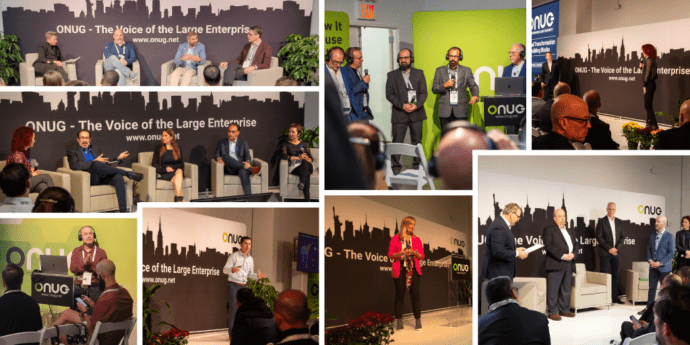The New IT Culture, Skills, and Organization Needed for Hybrid Cloud Environments
by Dr. Robert B. Cohen
In the move to hybrid infrastructure, the ability to commit new code faster and run new applications quickly gives agile firms an advantage in deploying new services. These innovations change the skills required for new jobs and enhance the role of developers. During the move to DevOps and containers, firms have created work teams or collaborative groups. They replace the more time-consuming, rigidly structured organizational design employed to develop monolithic software, where each level in a multi-stage process had to complete and sign off on its contribution. This was time consuming, often taking up to 25 to 90 days for a new application to be run.
The new platform teams meld skills that had formerly been isolated from each other, such as quality assurance and software testing. They perform tasks as a group, with people formerly in siloed parts of the structure contributing their expertise and learning more about the software development areas that were not their focus, such as testing. In the new structure, siloed positions such as individual software developers or quality assurance personnel are an integral part of new software engineering teams.
According to the 2016 survey of DevOps users, the highest DevOps performers can deploy code with a 2500 times shorter lead time than lower performers; a vast difference in efficiency. As firms jostle to become more software or programming based, this advantage is significant. For instance, when competition in the global auto industry was dogging US firms in the 1980s, analysts found that Toyota could produce twice as many cars as other firms with half the resources, a 4 times advantage.
When we look at software development, we find that to be agile, firms have cross-skilled jobs. Their new teams include software developers who know or begin to learn more about quality assurance and testing. The new knowledge requirements alter the culture of agile firms. They become more dependent on technical employees’ social skills and abilities to collaborate.
To describe these changes better, we summarize some of the main changes in the workforce being implemented at several companies.
Spotify, the Swedish music streaming service began life in 2011. It introduced a matrix organization including “Squads, Tribes, Chapters, and Guilds” to develop the software and analytics it required. Various groups are built around collaborative squads, work teams or scrums. At a higher level, the squads are joined into tribes, chapters and guilds in a type of matrix structure. The matrix permits individuals in different squads and tribes to transfer ideas and work between each other. Squads have the “skills and tools needed to design, develop, test, and release to production.”[1]
Netflix needed to shorten the time it took to complete software projects. It created teams with different skills who collaborate and bypass the old, monolithic process described above, often working with microservices and using artifact repositories. The team structure avoids previous delays in the product creation process because no group, such as quality assurance, can block approval. Rather, the group works as a team and organizational tasks are integrated with each other. The teams approve the results, often in only hours or less. One of Netflix’s teams uses microservices and combines project management, software development, quality assurance, and the deployment of new services in a single team. This new approach has enabled Netflix to perform far more sophisticated analysis of its subscriber base and to create offerings that respond to their tastes.
These two short cases suggest that organizations working with hybrid clouds will not only require new infrastructure and software skills but also need a different type of collaborative, team-like culture. This will place a much higher value on social skills. It should also promote the development of new skills and social cohesiveness among people working in such firms. This might have interesting implications for society if these internal values that support teamwork spread to society; they might result in a social philosophy diametrically opposed to Gordon Gekko’s “greed is good.”
[1] Henrik Kniberg & Anders Ivarsson, “Scaling Agile @ Spotify with Tribes, Squads, Chapters & Guilds,” October 2012. https://dl.dropbox.com/u/1018963/Articles/SpotifyScaling.pdf

Dr. Robert Cohen
Economic Strategy Institute


